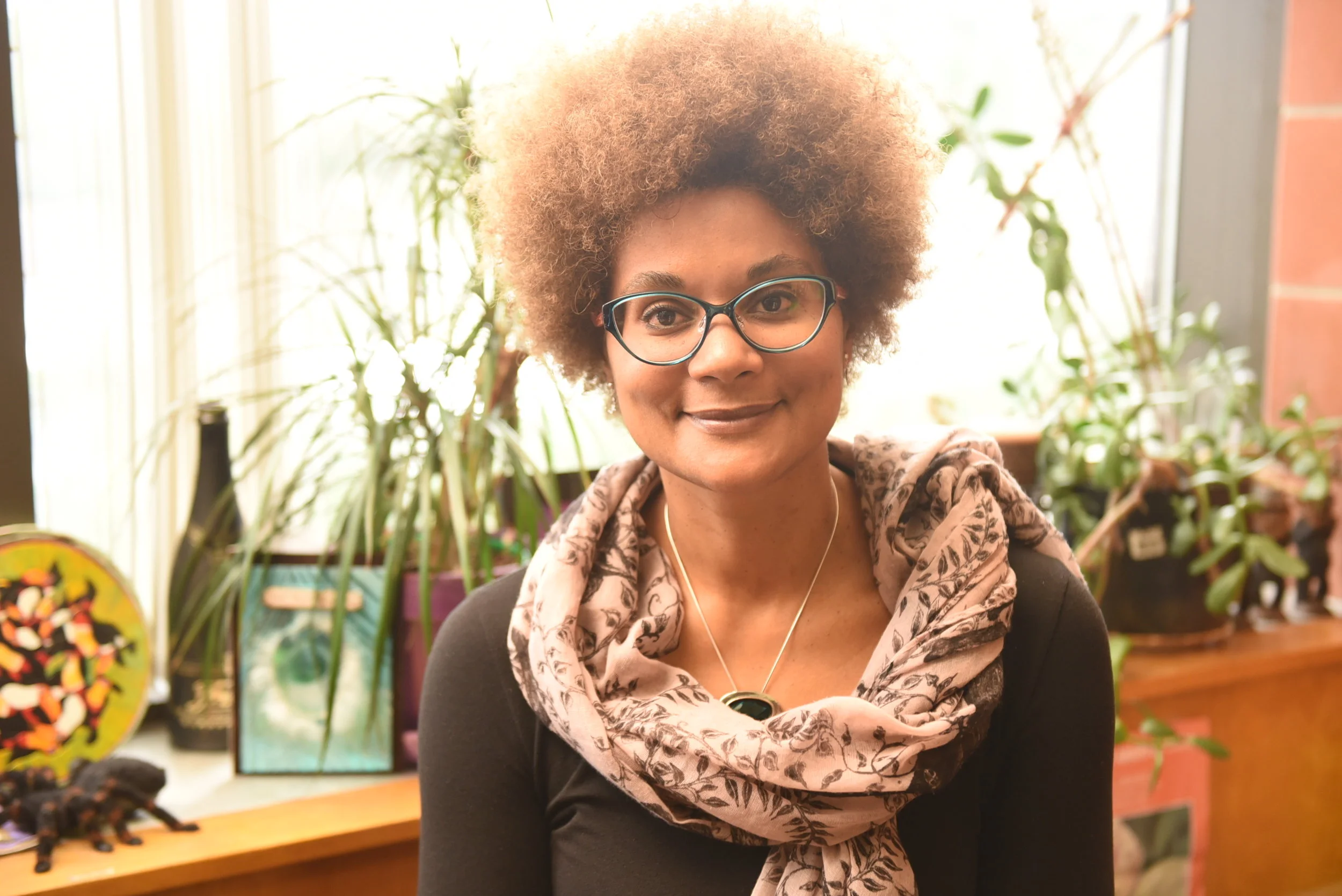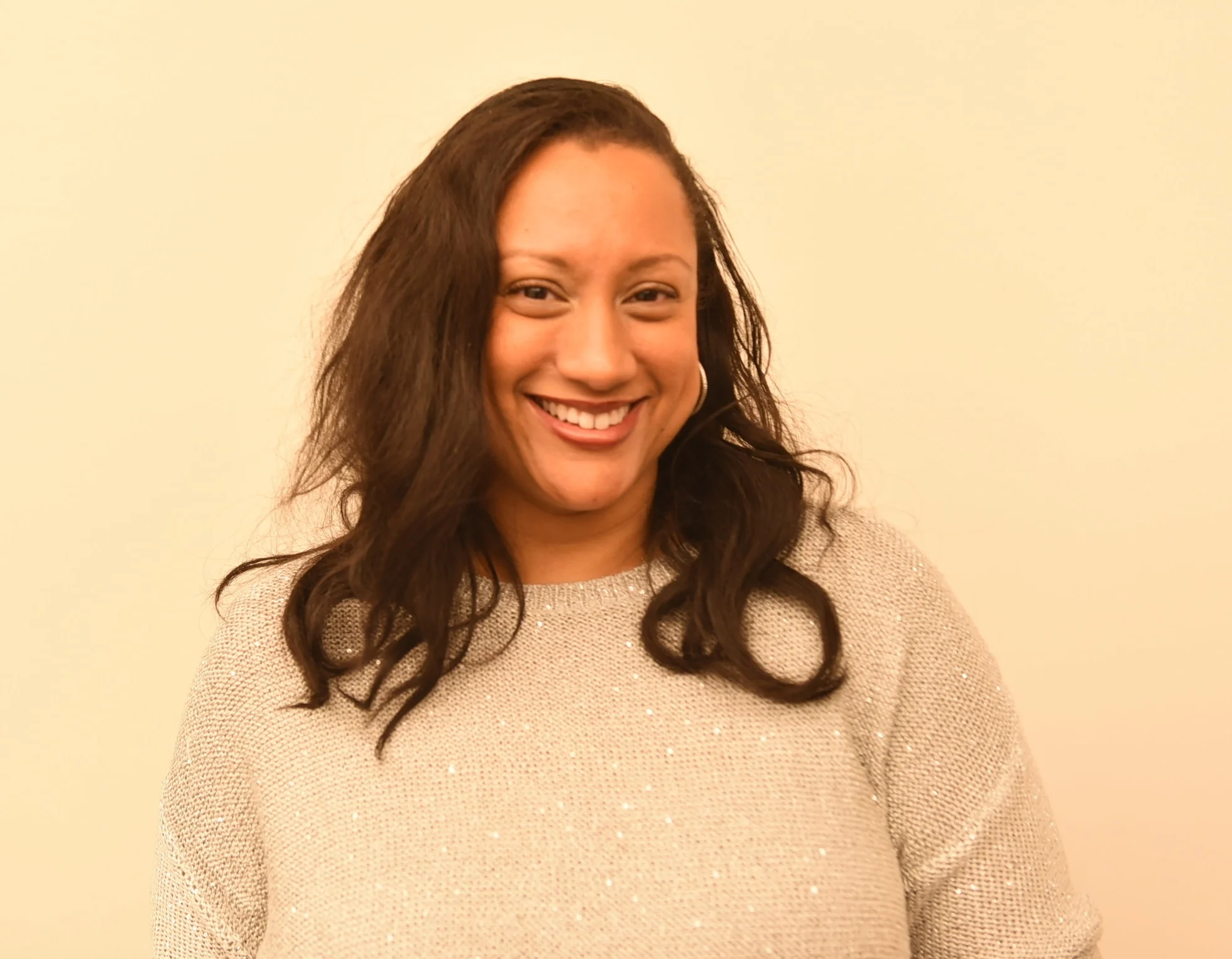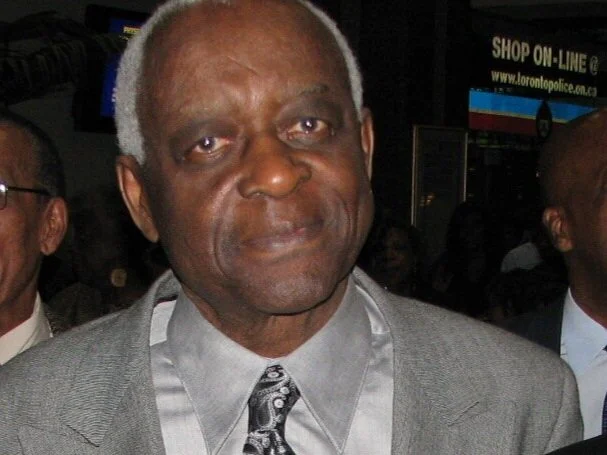Scientist finds niche working with spiders
April 8, 2017
Imagine a parent’s reaction when their child, who started undergraduate studies with the intention of becoming a paediatrician, suddenly does an about-turn a few months into her first semester, indicating she wants to work with bugs.
While Dr. Maydianne Andrade’s mom and dad didn’t attend university, they value education and knew that small crawling creatures and higher learning didn’t go hand in hand.
Or so they thought.
“I can just imagine the nightmarish conversations they had at night,” the University of Toronto Scarborough Campus (UTSC) ecology & evolutionary biology professor said. “When I told them exactly what I wanted to do, they asked me to explain the career path and what I would be doing. I said I wanted to be a professor and I will work with insects and they inquired if a professor can do that. When I assured them I could, they said just do it very well.”
Andrade, who uses spiders as models for understanding the evolution of mating behaviour, was recently appointed the UTSC vice-dean of faculty affairs & equity.
In her new role, the Jamaican-born academic will oversee the procedural aspects of faculty searches, appointments, tenure, and promotion and provide tools that will help with these processes.
“The role also supports UTSC’s aspiration to increase the diversity of people working here and ensure there’s a climate that they are happy to work in and where they will flourish,” Andrade, who is on a three-year contract, pointed out. “Even though we tend to focus on race and gender, clearly there is a wider range of diversity that we wish to have represented here. Unfortunately, there may be a similar diversity of unrecognized biases that cannot be anticipated. The key then is to ensure fair and transparent processes and that everyone understands that this goal is at the heart of the procedures we follow.”
Since becoming a faculty member 17 years ago, Andrade has received numerous requests to deliver talks about diversity and equity and what it means to be a woman, particularly Black woman in academia.
“I turned them down, which I think was a good thing to do at the time, because I needed to get tenure and my research going,” she noted. “However, after I became a Canada Research Chair, I remember being told this was not just about my research, but about me assuming leadership roles. That sunk in my head a little bit.”
Andrade, who is a Royal Ontario Museum research associate, said her wake-up call to act came several years ago when she was invited to speak at Ursula Franklin Academy during Black History Month.
“They said they were tired about hearing about the Underground Railroad and they wanted Blacks from the community to come in and present something else that students would be interested in,” the 2006 TVO Best Lecturer finalist recalled. “As a graduate student, I had read a paper about how people have a challenge assessing women fairly in the sciences and it essentially showed qualitatively the magnitude of the negative effect of being a woman and people’s assessment of your productivity. I started reading the literature and was shocked on how strong those effects are. It is these huge effects that, combined with an understanding of the under-representation of Black people and women in the academy, made me realize that as a scientist, what convinces me is data and I hadn’t heard it before. People came and told me about the Black experience and I got the feelings of lack of inclusion which can always be written off as an internal response to a standardized external condition.
“The data was very stark so I decided one way I would be comfortable engaging these issues initially just with this high school group and then with my colleagues was by talking about the qualitative effects of bias and helping people to realize that the social science literature has very quantitative data on this that should be permeating our consciousness more generally I think. Even though I work with spiders, I am primarily a scientist. I engage with this world through data and I kind of decided I can also be a translator for people in fields like mine. What I do now is try to keep abreast of the literature in these areas and then havecase studies depending on which group I am talking to that are relevant to assessing leadership ability, whether you are a woman or person of colour.”
Moving to British Columbia with her family at age three, Andrade graduated from Simon Fraser University and the University of Toronto Mississauga Campus (UTMC) with science degrees.
While pursuing her Master’s at UTMC, she met Dr. Darryl Gwynne who introduced her to the indigenous nocturnal Australia redback spider.
“I learnt quite early on through doing undergraduate research that I wasn’t comfortable working with vertebrates,” she said. “I had a lab job working with insects which I was comfortable with because you can sort of mimic their environment, you can rear them in large numbers and you can do experiments. You can essentially fool them with the context that you build in your lab and then you study them in the field. For me, that was a really powerful combination.”
When Gwynne saw that Andrade was interested in studying spiders’ sexual behaviour, he invited her in the mid-1990s to travel to Perth, Australia where he was heading on sabbatical with his family.
“He was a great mentor and he told me there was this spider that does this really interesting thing that would fit really well with what I am studying,” she said. “It was a fantastic opportunity to get away from Canada in the middle of winter, go somewhere where the weather was hot and do some really interesting research.”
Spending many nights as a voyeur watching these strange mate behaviours occur and crawling through the dirt looking for webs, Andrade discovered that mating is so dangerous and unlikely for male redbacks that only about 20 per cent of them successfully make the journey to a female’s web. She constructed a theory around this fact that it was evolutionarily sound for a male to be cannibalized while mating.
Gwynne, a U of T biology professor for the past 30 years, said Andrade impressed him the first time they met.
“Usually undergraduate students interested in graduate school want the professor to give them a project,” he said. “She, however, walked in and said, ‘this is what I want to study’. She didn’t even have a study species in mind, but she had read an article by late well-known Harvard biologist Stephen Gould and she was unimpressed by his conclusions.”
Gould argued that sexual cannibalism was too rare to be significant. He suggested that females eat their mates simply because they mistake them for prey.
Subsequent research refuted parts of that argument.
“Maydianne thought he was doing that with no evidence and she decided she was going to go and find out what is really going on,” added Gwynne. “…I knew she was going to be good and would work out very well as a graduate student. She’s just a wonderful, all-round great person who is fun to be with. The university obviously recognizes great talent and has done the right thing in appointing her a vice-dean with responsibility for equity & faculty affairs.”
It was also at UTMC that Andrade met her husband, Dr. Andrew Mason, who chairs the UTSC biological sciences department. His office is adjacent to his wife and, in the past, they sat on the same committees and combined to do experiments and have lab meetings before she moved into the Dean’s office.
They still use one car to commute to work and often eat lunch together.
“I know this wouldn’t work for a lot of people, but it does for us,” she said. “I just like spending time with my husband and our two kids.”
After graduating with a PhD from Cornell University’s neurobiology & behaviour department in 2000, Andrade and her husband, who was also at the same university as a postdoctoral fellow and research assistant, returned to Canada after five years south of the border.
“We did start looking around for where we wanted to live and for me, Vancouver was the number one choice followed by Toronto,” she said. “For my husband, it was the other way around. We could have stayed in the United States, but we didn’t want to do that. I wanted to live in Canada because I love it here. The funding system and the way they treat race there is very different. I am much more comfortable with the Canadian model.”
The couple will host the 54th annual animal behaviour society conference from June 12-16 at UTSC.






